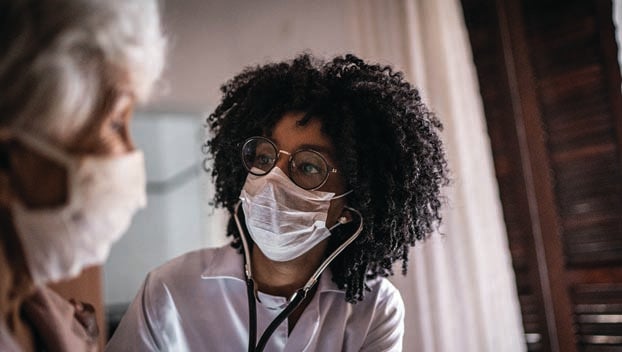80% of us consider hearing loss serious, so why do we ignore it?
Published 12:00 am Saturday, March 6, 2021
|
Getting your Trinity Audio player ready...
|
Good hearing health is essential; it keeps us connected to the ones we love and the activities we enjoy. In recognition of World Hearing Day, which was observed this week on March 3, the World Health Organization released the first World Report on Hearing to present a call to action on the current status of global ear and hearing problems, the causative and preventive factors of hearing loss, and clinical and public health solutions.
New research from the Hearing Industries Association reveals that four out of five Americans consider hearing loss serious, but ignoring the problem is more common than you may think. Fewer than 16% of adults ages 20-69 who need a hearing aid use one. That number almost doubles to 30% for adults over age 70 who need a hearing aid but don’t use one, according to the National Institute on Deafness and Other Communication Disorders. Overall, an estimated 38 million Americans have a hearing loss. Take action to protect your hearing, and reach out to those you care about who may be hesitant to address their hearing loss. Here are seven reasons to act today.
- If you notice hearing loss, get tested to find out why.
You may have hearing loss that comes with age, or you may have a medical problem that needs immediate attention. You may just have wax in your ears! Regardless of the problem, there is likely a solution to improve your hearing.
- You may not notice you have hearing loss because it happens gradually.
On average, Americans wait six years to address hearing loss. They may be ignoring some of the signs of early hearing loss: turning up the volume; asking “what?” more often; having trouble hearing children’s or women’s voices; or having trouble differentiating individual voices when a room is loud. According to The American Speech-Language-Hearing Association, if you are not having hearing loss, you should get tested every 10 years until you turn 50, and every three years after that.
- You are at risk of losing more than your hearing.
Hearing loss is associated with higher rates of depression, dementia and falls that require hospitalization. Even mild hearing loss doubles the risk of dementia; moderate loss triples the risk and those with severe loss are five times more likely to develop dementia.
- Hearing aids are far better today than in the past.
Advances in technology have made hearing aids smaller and more sophisticated. Worn in or behind the ears, hearing aids with Bluetooth can stream sound from a phone or TV directly into your ear. New processor technology can help amplify the sounds you want to hear and help mask tinnitus. Some hearing aids can adapt to your habits and environments to improve your hearing experience.
- Better hearing can be affordable.
Like other technology you use daily there is an upfront investment, so to demonstrate the true value, consider the cost per day over the life of the hearing aid. For a few dollars a day, you can stay connected and engaged. Check your insurance policy to see if hearing health is covered. Veterans can get hearing aids at no cost. While traditional Medicare doesn’t cover hearing health, most Medicare Advantage programs include a hearing benefit.
- You can manage much of your hearing health from home.
Thanks to advances in telehealth and technology, you can handle many hearing appointments from the comfort of your home. Because of COVID, many Americans are taking advantage of telehealth. HIA research shows 42% of respondents used telehealth in the past year. Your initial assessment and annual checkups need to be done in person, but if you opt for a hearing aid, many future appointments can be done remotely.
- Hearing health is a sign of the times.
Today, people of all ages are using earbuds or headsets. With the pandemic, adults and kids are plugged in for hours at a time for phone calls, meetings and schoolwork. Pay attention to the volume: Sounds above 85 dB can be harmful. Protect delicate inner-ear hair cells against excessive noise by wearing protective noise-cancelling headphones or earplugs. Be proactive about your hearing wellness throughout your life.
Visit betterhearing.org for links to online tests, or contact a hearing physician near you and schedule an in-person hearing test today.





